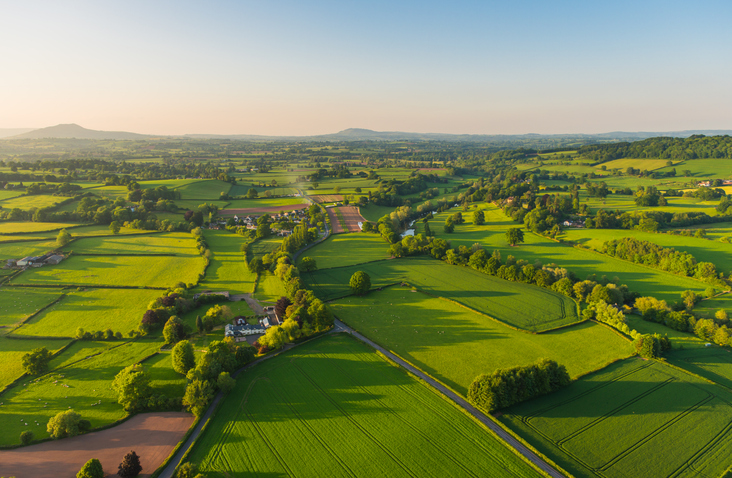Three researchers from Leicester University’s Centre for Hate Studies produced a curious report on Monday about the English countryside. Their theme is that much of rural England is a white racist redoubt, where anyone from an ethnic minority is made to feel unwelcome and psychologically, if not physically, excluded. People of colour, it is said, find themselves unaccepted, stared at, and occasionally insulted or worse. Serious measures, we are told, are called for to remove this injustice.
You could dismiss this as yet another predictable production from a group of tiresomely progressive academics. And in a sense you would have a point. The name of the authoring group, the Centre for Hate Studies, says a lot; and in addition, one of the authors is the same academic who was commissioned five years ago by the National Trust amid high controversy to report on links between its properties and slavery and colonialism. But that would be unfair. The authors are respectable academics; universities are there to accommodate all views, even those we may dislike; and there is no suggestion of dishonesty or any other academic skulduggery. And besides, there are rather better reasons to suggest that this document is best politely ignored and left to gather academic dust.
This one does add a great deal to our knowledge about the English countryside
One point concerns its nature. Though based on much research, in the sense of in-depth interviews with a number of ethnic minority visitors to the countryside, it is unashamedly activist. It refers repeatedly to the existence of widespread racism in contemporary Britain, and on occasion to what the authors see as the pervasive colonialist stain polluting the English rural idyll. Next to a reference to inviting minorities in the countryside to send in artistic work and creative writing, there is a telling aside that this is all ‘grounded in a commitment to co-production and racial justice’.
In the report we see sustained attacks on Restore Trust for seeking the erasure of history, and on those who fail to see racist connotations in everything rustic, from gardening to pub names, again for being racially illiterate. And that’s before you reach the recommendations for action: we must all, for example, ‘validate and respect lived experience’, and ’embed ethical accountability’ in rural history by – yes – getting white researchers to ‘disclose their connections to colonial and racial violence’, amongst other things.
Polemics like this are a fine academic tradition, even if somewhat tiresome to read. But what this one does not do is add a great deal to our knowledge about the English countryside.
That brings us to the second point. What is fascinating about this rather dour academic document is not what it says but the scale of what it misses. It essentially sees the English countryside largely as a beautiful environment giving visitors (and residents) a wonderful sense of peace and communion with nature and then as an amenity whose enjoyment is unfairly denied to many racial minorities.
But this view of countryside-as-desirable-amenity is arguably the problem. That could equally apply to (say) a well-maintained country park at the edge of a city or a leafy, rich, not-quite-suburban paradise on the lines of Westchester County in New York. What makes the English countryside so much more than either of these is not its vistas but its human ecosystem. This comprises many things: a strong sense of place and community of outlook, not to mention a reverence for continuity with the past. It also, importantly, includes a feeling that those who have lived on and worked in the English countryside for decades, if not generations, are probably better placed to set the tone of the place than visitors or recent incomers.
It also tracks with the idea that those who live in the country and make it what it is expect visitors and incomers to respect its customs and preserve what they visit. Visitors seeking to impose their own different values, whether because of alien culture, suburban brashness or anything else, will not be well regarded; on the other hand, the countryside is a very live-and-let-live place. Of course there is head-banging racism in Widdecombe-in-the-Moor, just as in Walsall or Walthamstow. But generally speaking, respectful non-conformity is probably much more accepted in the sticks than in most of suburbia.
This matters. It is precisely the expectation that visitors should respect countryside customs even if they go against their own culture that produces the quiet, unhurried continuity and the escape from the bustle of the city. It is this which makes our countryside so popular and so interesting.
Unfortunately, the Leicester report comes close to demanding that this must go in the name of equality and racial justice, and that the people who live in the country must adopt the egalitarian, cosmopolitan landscape of our cities – and university towns. And there’s the problem. Do this, and you won’t have an inclusive English countryside. You’ll have a dreary, soulless and very expensive version of Camden Town with fields. Does anyone, even an ethnic minority visitor to the Cotswolds, really want that?







Comments